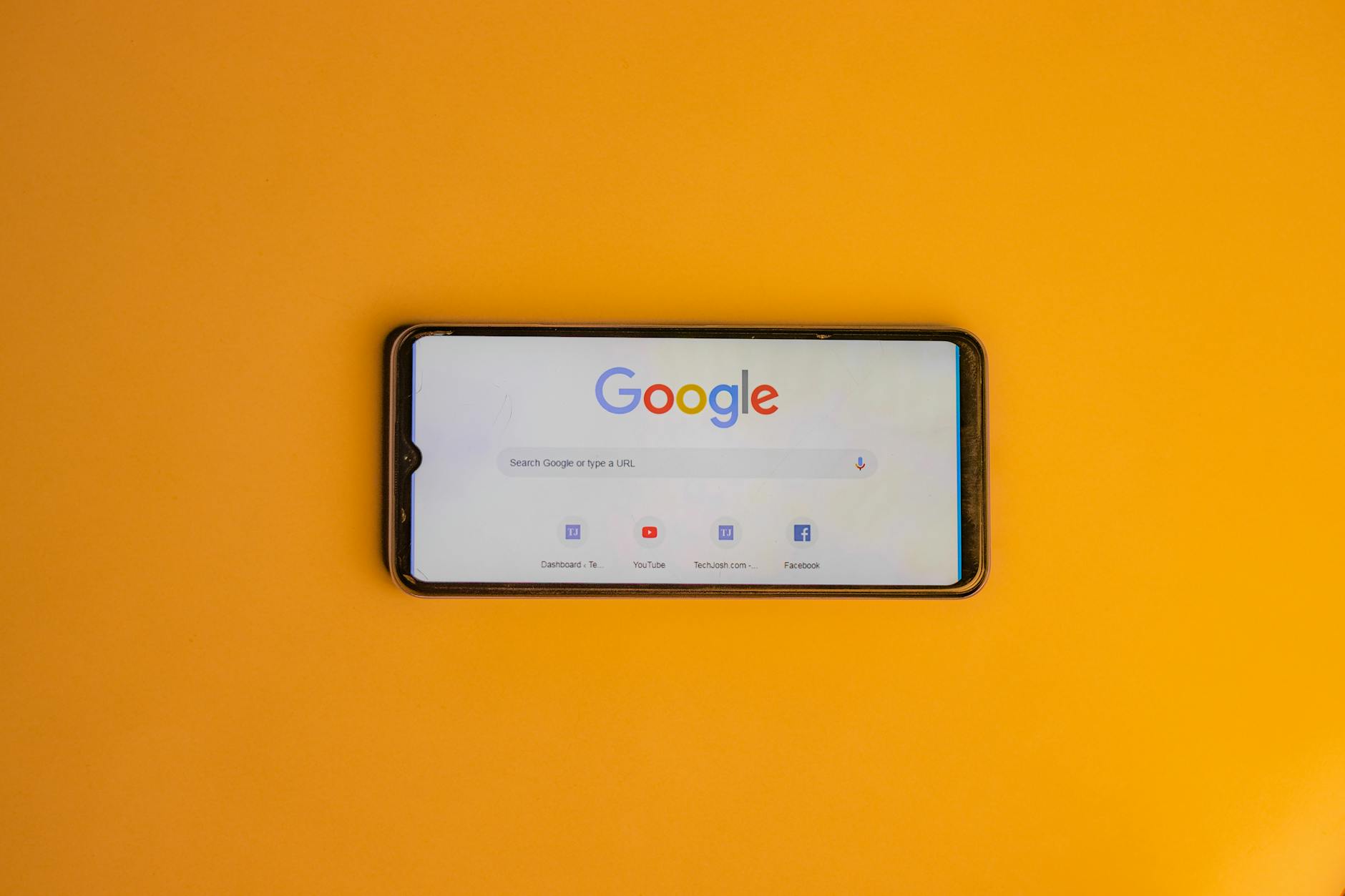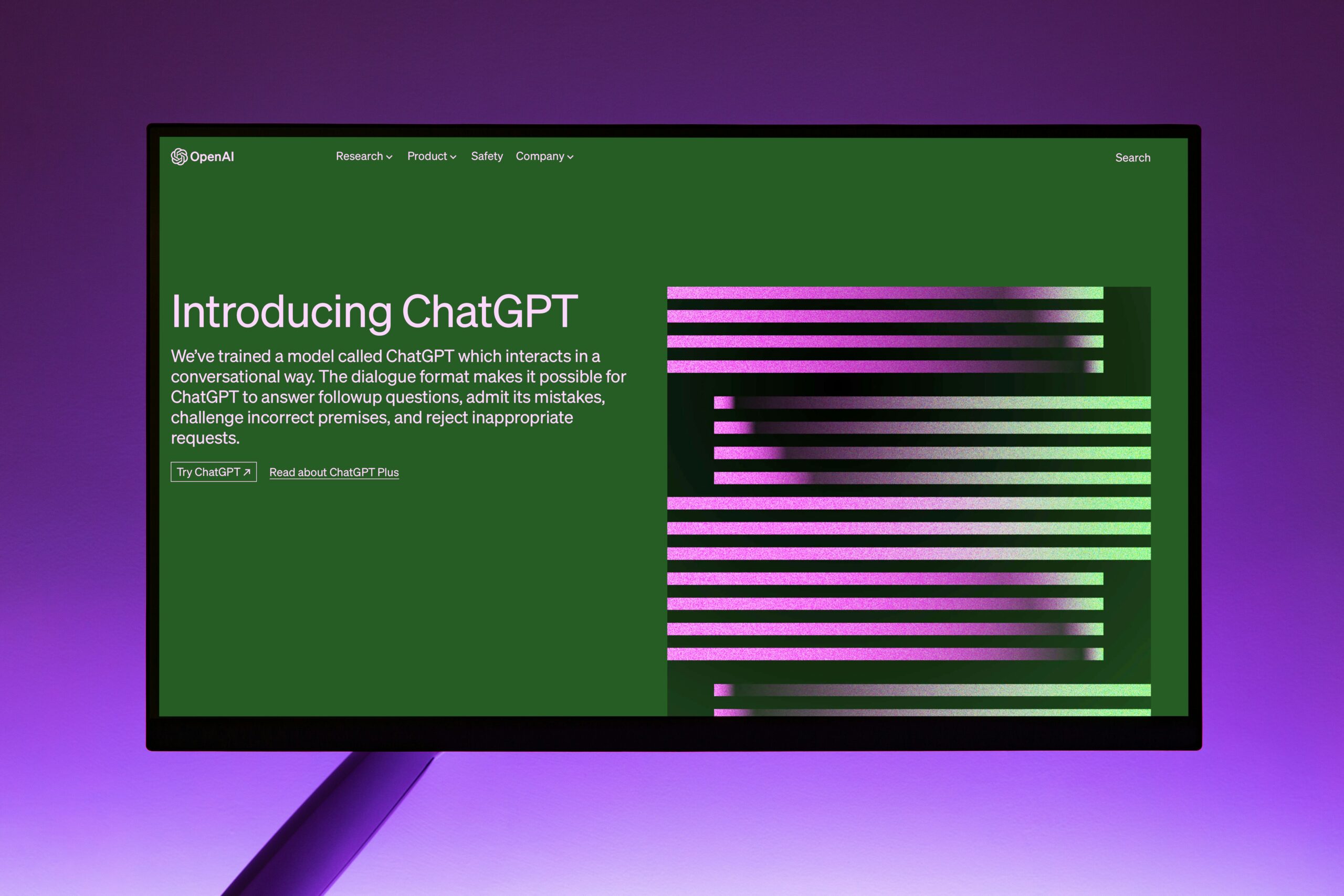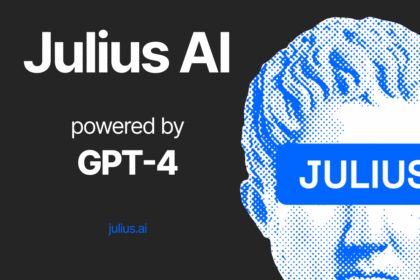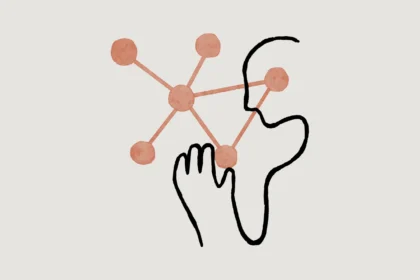Numerous reports claim that AI-powered search tools and chatbots are slashing traffic to publishers’ websites. But Google pushed back on Wednesday, stating that overall organic click traffic from its search engine has remained “relatively stable” compared to last year, and that the quality of clicks has “slightly increased.”
“This data contrasts sharply with third-party reports that misrepresent the reality often relying on flawed methodologies, cherry-picked examples, or outdated traffic patterns that predate the rollout of AI in Search,” wrote Liz Reid, Google’s VP and Head of Search, in a new blog post.
Google didn’t release specific traffic data, so it’s hard to independently verify its claim. But even if Google’s data is accurate, it doesn’t mean AI hasn’t changed the game.
In fact, Reid conceded that “user trends are shifting traffic to different sites, resulting in decreased traffic to some sites and increased traffic to others.”
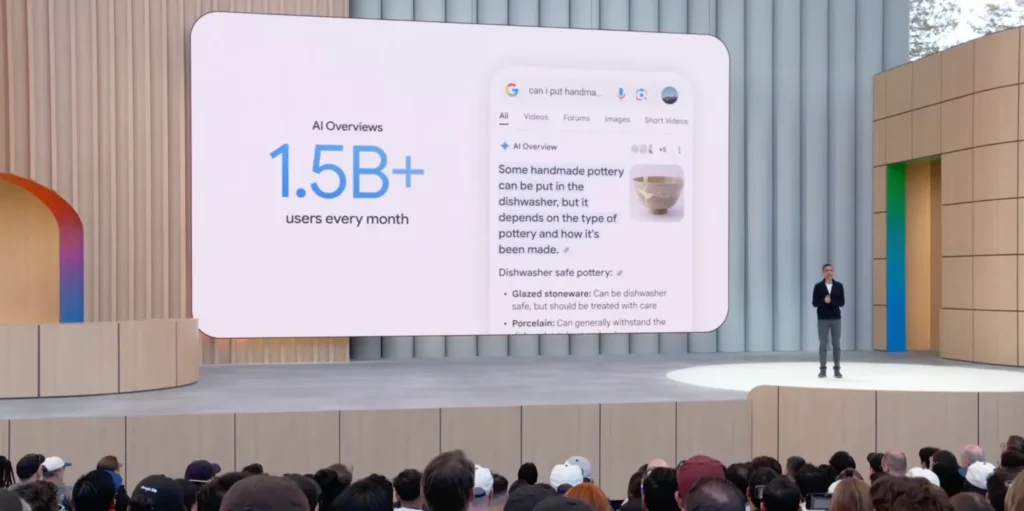
That word “some” does a lot of work here since Google hasn’t said how many sites are losing vs. gaining. And though chatbots like ChatGPT have seen rising traffic, many online publishers say they’re losing out.
Over the years, Google has worked to keep more answers on its own search pages, and that effort has only intensified with “AI Overviews,” which offer summaries atop search results. Google also now offers users the ability to interact directly with an AI chatbot on select queries. But the company insists these AI features haven’t significantly impacted the broader search ecosystem. Instead, it says users are simply shifting where they begin their searches.
According to Reid, “People are increasingly seeking out and clicking on sites with forums, videos, podcasts, and posts where they can hear authentic voices and first-hand perspectives.”
Related: Reddit to Unify Search Interface in Push to Become a Full-Fledged Search Engine
If that sounds like Google Search isn’t the default starting point for the web anymore, well, that’s not exactly news. Back in 2022, even a senior Google executive acknowledged this publicly. At a conference that year, Google SVP Prabhakar Raghavan, who then led the company’s Knowledge and Information division, said that TikTok and Instagram were eating into Google’s dominance.
“In our studies, something like almost 40% of young people, when they’re looking for a place for lunch, they don’t go to Google Maps or Search,” Raghavan said. “They go to TikTok or Instagram.”
Google has long had concerns about Amazon becoming the go-to for online shopping searches and Reddit becoming the preferred starting point for product research or niche topics.
Over the years, Google has tried to win back users and retailers with tools like universal shopping carts, deal finders, and the ability to search directly from product images. In 2020, it made Shopping listings free for merchants.
As users voiced frustration over declining search result quality, Google noticed increasing demand for Reddit content. That led to the company adding a “Reddit” filter to search results, later relabeled “forums.”
So Google may be technically correct: AI isn’t solely to blame for the changing nature of search. That shift has been happening for years.
In its new blog post, Google also seems to redefine success for websites. Instead of measuring by sheer click volume, it wants publishers to focus on “click quality.”
According to the company, more of the clicks it sends today are “quality clicks,” meaning people who land on a site actually stay to read instead of bouncing back immediately. When people click through an AI Overview to the source site, they’re more likely to engage deeply, Google claims making those clicks more valuable.
But again, Google doesn’t share how much “click quality” has improved, just that it has.
The company also frames AI as a new visibility opportunity for publishers. Reid writes, “With AI Overviews, people are seeing more links on the page than before. More queries and more links mean more opportunities for websites to surface and get clicked.”
But so far, data suggests AI isn’t compensating for the decline in traditional clicks. Research from Similarweb found that the number of news-related search queries ending in zero clicks rose from 56% in May 2024 (when AI Overviews launched) to 69% in May 2025.
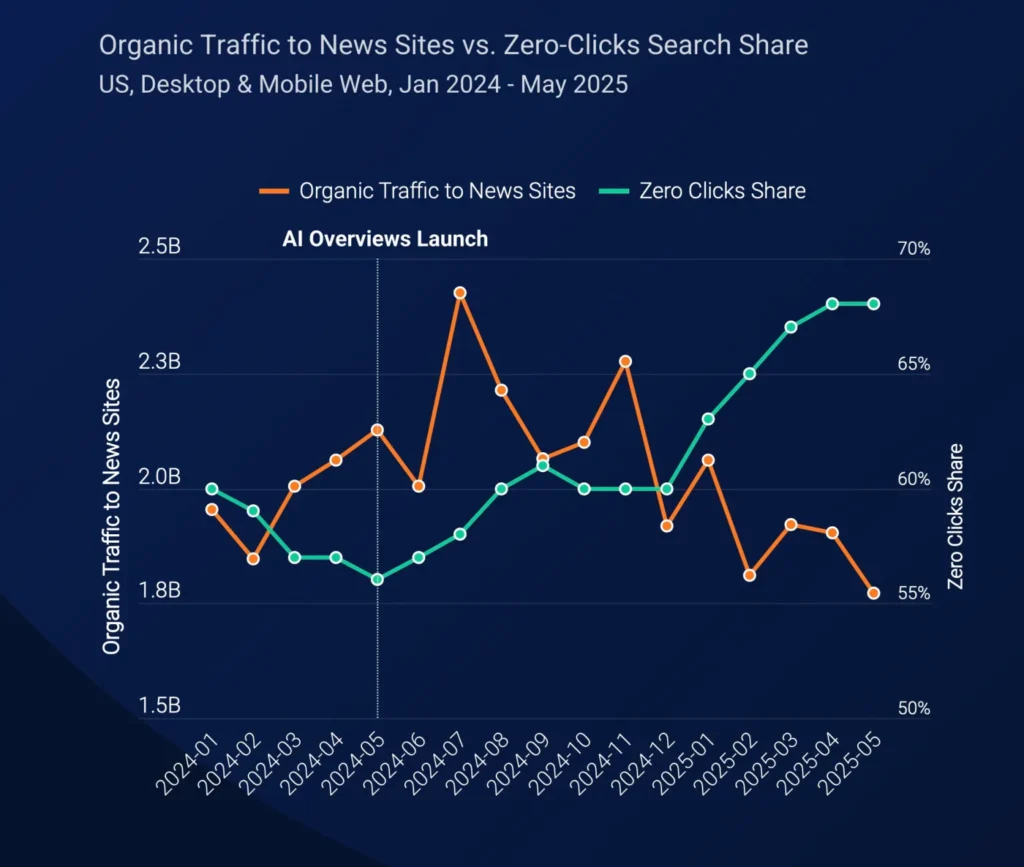
Google seems to understand that dynamic too. It recently rolled out a new monetization toolkit for publishers, helping them earn revenue from dwindling traffic through means beyond advertising including micropayments and newsletter subscriptions.
The tone of Google’s new blog post, an extended defense of the company’s position is notable. It feels like a carefully timed PR move meant to reassure publishers that search traffic isn’t dead. But it also raises the question: if everything’s going so well, why the need for reassurance?
The company insists publishers should trust that “billions of clicks” still flow to websites from Google every day even as they see their own analytics tell a different story.


